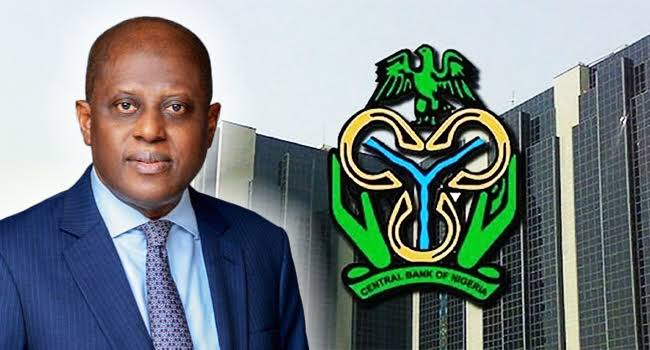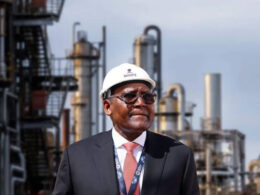Nigeria’s foreign reserves have reached a significant milestone.
Foreign reserves currently standing at $39.12 billion as of October 11, 2024. This remarkable increase from $34.70 billion in June 2024 represents a 12.74% surge, according to Yemi Cardoso, the Governor of the Central Bank of Nigeria (CBN). This growth, attributed to several factors including foreign capital inflows and crude oil-related revenues, reflects a strengthening of Nigeria’s external financial position amidst ongoing economic challenges.
Cardoso, during an interaction with the House of Representatives Committee on Banking, emphasized that the boost in foreign reserves signals a critical improvement in Nigeria’s ability to manage external shocks. He noted that the current reserves could finance over 12 months of imports for goods and services, far surpassing the internationally prescribed benchmark of three months.
The governor highlighted that the substantial inflows were driven by remittances, which now account for 9.4% of the total external reserves. These inflows have significantly contributed to the financial buffer that provides Nigeria with protection against global economic volatility.
Additionally, the foreign reserves’ growth was bolstered by crude oil-related tax receipts and third-party revenues. As Nigeria continues to enhance its trade policies and oil production capabilities, this upward trend in reserves is expected to continue. Cardoso explained, “This is substantially higher than the prescribed international benchmark of 3.0 months, reflecting a robust buffer against external shocks.”
Despite these positive developments, Nigeria’s economy continues to grapple with inflationary pressures. According to Cardoso, inflation reached a peak of 34.19% in June 2024 but began decelerating in the months following. By August 2024, inflation had eased to 32.15%, largely due to monetary policy interventions by the CBN. Cardoso attributed this moderation to aggressive tightening measures, including an increase in the policy rate by 850 basis points to 27.25%.
The CBN’s decision to fully revert to orthodox monetary policy approaches has played a key role in containing inflation. The bank has implemented a series of measures such as raising Cash Reserve Ratios and normalizing Open Market Operations to manage liquidity more effectively. The introduction of an Inflation-Targeting (IT) monetary policy framework is also expected to support the bank’s long-term economic goals.
Cardoso expressed optimism about the future, stating that inflation is expected to continue its downward trend in the near to medium term, thanks to the CBN’s coordinated monetary and fiscal policy efforts.
A Vision for a $1 Trillion Economy by 2030
A major part of Nigeria’s economic strategy is the aspiration to build a $1 trillion economy by 2030. To support this ambitious goal, the CBN has introduced measures to recapitalize the banking sector. Commercial banks are required to meet new minimum capital base requirements by March 2026. These reforms are designed to strengthen the financial sector, ensuring that it can support the growing demands of the Nigerian economy.
Banks will have several options to meet the recapitalization requirements, including issuing new equities, engaging in mergers and acquisitions, or adjusting operational licenses. Cardoso reiterated that this process is crucial for achieving Nigeria’s economic objectives over the next decade.
The CBN’s emphasis on financial sector stability has been met with praise from lawmakers. Hon. Mohammed Bello El-Rufai, chairman of the House Committee on Banking Regulations, commended the central bank’s efforts to stabilize the economy and enhance market transparency. He highlighted the CBN’s unification of the foreign exchange market as a significant achievement in reducing market distortions and improving liquidity.
The CBN’s efforts to reform the foreign exchange market have been critical in driving the country’s economic stabilization. The unification of various exchange rate windows into a single market-driven model has enhanced transparency and restored investor confidence. The introduction of the “Willing Buyer, Willing Seller” approach has also contributed to the clearing of a $7 billion backlog in valid foreign exchange transactions, significantly reducing volatility in the market.
As part of these reforms, the CBN has taken steps to streamline its foreign exchange management policies, which have led to a significant increase in the country’s external r. Likeeserves. These measures have also encouraged greater participation in the foreign exchange market by both domestic and foreign investors.
Cardoso also stressed the importance of recapitalizing Nigeria’s banking sector to support the country’s economic vision. By raising the minimum capital base, the CBN aims to ensure that the banking sector remains resilient in the face of global economic uncertainties. The deadline for meeting these new thresholds is March 2026, giving banks ample time to adjust their operations and align with the central bank’s long-term strategy.
In his remarks, Hon. Bello El-Rufai commended the CBN for its proactive stance in stabilizing the economy and improving financial market stability. He noted that the recapitalization policy is expected to create a stronger, more resilient banking sector that can support Nigeria’s growing economy.










Join our Channel...